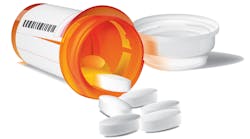Depression is a severe mood disorder diagnosed when a person reports feelings of constant sadness that last longer than two weeks. This feeling of hopelessness and a loss of interest in daily life can significantly impact a person’s well-being. Numerous things, including stress, social situations and influences, genetics, and chemical imbalances in the brain can cause depression.
Depression is a widespread mental health disorder that affects people of all ages, ethnicities, and backgrounds. Globally, an estimated 350 million people experience some form of depression, making it one of the most common psychological conditions. Known formally as major depressive disorder (MDD), these disorders can be diagnosed as several subtypes, such as persistent depressive disorder, perinatal depression, seasonal affective disorder, bipolar disorder, and depression with psychosis. Historically, treatment has involved medication, with a formal diagnosis being the foundation for effective management.1-3
We’ve recently seen higher incidences of depressive disorders being diagnosed, particularly in females, both adults and adolescents. In the last five years, antidepressant medication use has increased by 63.5%.4 It’s crucial for anyone experiencing feelings of depression to seek professional treatment, and dental professionals need to be aware of two important oral cavity changes commonly seen with specific antidepressant medications.
Antidepressant medications
There are seven different kinds of medications used to treat the various types of depressive disorders, and they all work differently:
- Tricyclic antidepressants (TCAs)
- Selective serotonin reuptake inhibitors (SSRIs)
- Norepinephrine and dopamine reuptake inhibitors (NDRIs)
- Serotonin and norepinephrine reuptake inhibitors (SNRIs)
- Serotonin antagonist and reuptake inhibitors (SARIs)
- Monoamine oxidase inhibitors (MAOIs)
- Tetracyclic antidepressants (TeCAs)
Some of these are more commonly prescribed than others. These drugs work differently and react differently in the body regarding their absorption and metabolism rate. The first antidepressant medications ever developed were tricyclic antidepressants (TCAs) and monoamine oxidase inhibitors (MAOIs).5
SSRIs
One type of medication commonly used to treat depressive disorders is selective serotonin reuptake inhibitors (SSRIs). These are widely favored due to having minimal side effects. However, their most considerable side effect is thought to be their impact on serotonin, and thus indirectly, on dopamine.5-7
Dopamine is a neurotransmitter that affects mood because the brain feeds from it like a reward system. Also, serotonin is a neurotransmitter that affects mood; high levels make one feel euphoric. SSRIs cause dopamine levels to decrease because serotonin competes with dopamine for space in the brain.5,6 In other words, making a lot of serotonin causes dopamine levels to drop.
Dopamine, in turn, affects muscular and motor functions, causing patients to experience a parafunctional habit such as bruxism. One study found that almost 25% of the population taking SSRIs experienced bruxism. The most prescribed SSRIs that cause bruxism are venlafaxine (Effexor), sertraline (Zoloft), and fluoxetine (Prozac).7
Other SSRIs commonly prescribed include citalopram (Celexa), escitalopram (Lexapro), fluvoxamine (Luvox), paroxetine (Paxil, Pexeva), and vilazodone (Viibryd). Fluoxetine is the most prescribed SSRI.6
In addition to bruxism, a systematic review showed that patients who took SSRIs had a higher incidence of xerostomia and caries. A patient taking an SSRI is at an increased risk for oral problems.
Tricyclic antidepressants
Tricyclic antidepressants (TCAs) are another type of antidepressant. Unlike SSRIs, serotonin and norepinephrine are released at an increased rate to alter one’s euphoric state.8 TCAs are less commonly prescribed due to their heavy side effects; medical providers have found that patients tend to favor other antidepressant medications.
One harsh side effect of TCAs is xerostomia.8,9 “In a study of parotid gland salivary flow rates, patients taking tricyclic antidepressants had a 58% reduction in flow rates compared with untreated controls, while the flow rate was reduced by 32% with SSRIs.”9
Scientists are not exactly sure why TCAs cause such high incidences of xerostomia. They hypothesize that either the salivary gland is altered by the medication, the patient’s euphoric state of mind no longer recognizes xerostomia, or a combination of both.9
The most commonly prescribed TCAs are amitriptyline (Elavil, Vanatrip), amoxapine (Asendin), desipramine (Norpramin), doxepin (Silenor, Sinequan), imipramine (Tofranil, Tofranil-PM), nortriptyline (Aventyl, Pamelor), protriptyline (Vivactil), and trimipramine (Surmontil).8 The same systematic review that noted SSRIs have a higher risk for caries and xerostomia also recognized that TCAs do also.10
Dental practitioners can help their patients who are taking antidepressants recognize that some, more than others, may have severe oral side effects. Bruxism is a concern because it can cause tooth wear facets, craze lines, and failed restorations. Sensitivity and periodontal issues may also arise.
Xerostomia can also have detrimental effects on patients because it can cause tenderness on the mucosa and increase a patient’s risk for caries. Because both bruxism and xerostomia can happen slowly, patients may not be aware of the changes in their mouth. Dental professionals should always review a patient’s medical and dental history to help educate and inform them of any changes.
When a patient feels like their oral health status has been significantly affected, possibly due to their antidepressant medication, they may want to consult their physician and consider switching to a different medication. Dental providers should never suggest that a patient stop taking their antidepressant or change their dosage without speaking to the physician first. A collaboration between dental and medical providers may be needed to provide the best patient care.
References
- Depression. National Institute of Mental Health. 2024. https://www.nimh.nih.gov/health/topics/depression
- Depression. National Association of Mental Illness. 2024. https://www.nami.org/about-mental-illness/mental-health-conditions/depression/?tab=overview
- Madison A, Kiecolt-Glaser JK. Stress, depression, diet, and the gut microbiota: human-bacteria interactions at the core of psychoneuroimmunology and nutrition. Curr Opin Behav Sci. 2019;28:105-110. doi:10.1016/j.cobeha.2019.01.011
- DeAngelis T. Antidepressant use among teen girls and young women has skyrocketed. APA. July 1, 2024. https://www.apa.org/monitor/2024/07/antidepressant-use-girls-women-covid-pandemic
- Pope C. Antidepressants. Drugs. April 17, 2023. https://www.drugs.com/drug-class/antidepressants.html
- Selective serotonin reuptake inhibitors (SSRIs). Cleveland Clinic. March 5, 2023. https://my.clevelandclinic.org/health/treatments/24795-ssri
- Dry mouth/grinding teeth: side effects of SSRIs and what to do. Restore Mental Health. January 29, 2023. https://restore-mentalhealth.com/side-effects-ssris/
- Tricyclic antidepressants (TCAs). Cleveland Clinic. July 24, 2023. https://my.clevelandclinic.org/health/treatments/25146-tricyclic-antidepressants
- Daly C. Oral and dental effects of antidepressants. Aust Prescr. 2016;39(3):84. doi:10.18773/austprescr.2016.035
- Alcázar-Hernández JM, Pecci-Lloret MR, Guerrero-Gironés J. Oral manifestations in patients in treatment with antidepressants: a systematic review. J Clin Med. 2024;13(22):6945. doi:10.3390/jcm13226945
About the Author

Tracee S. Dahm, MS, RDH
Tracee S. Dahm, MS, BSDH, is an adjunct clinical instructor for the North Idaho College School of Dental Hygiene. She also works in private practice. Dahm has been published in dental journals, magazines, webinars, and textbooks, and featured on dental podcasts. She is a key opinion leader on cutting-edge innovations in the hygiene field. Her research interests include trends in dental hygiene, improving access to dental care for the underserved, and mental health. She can be reached at [email protected].


